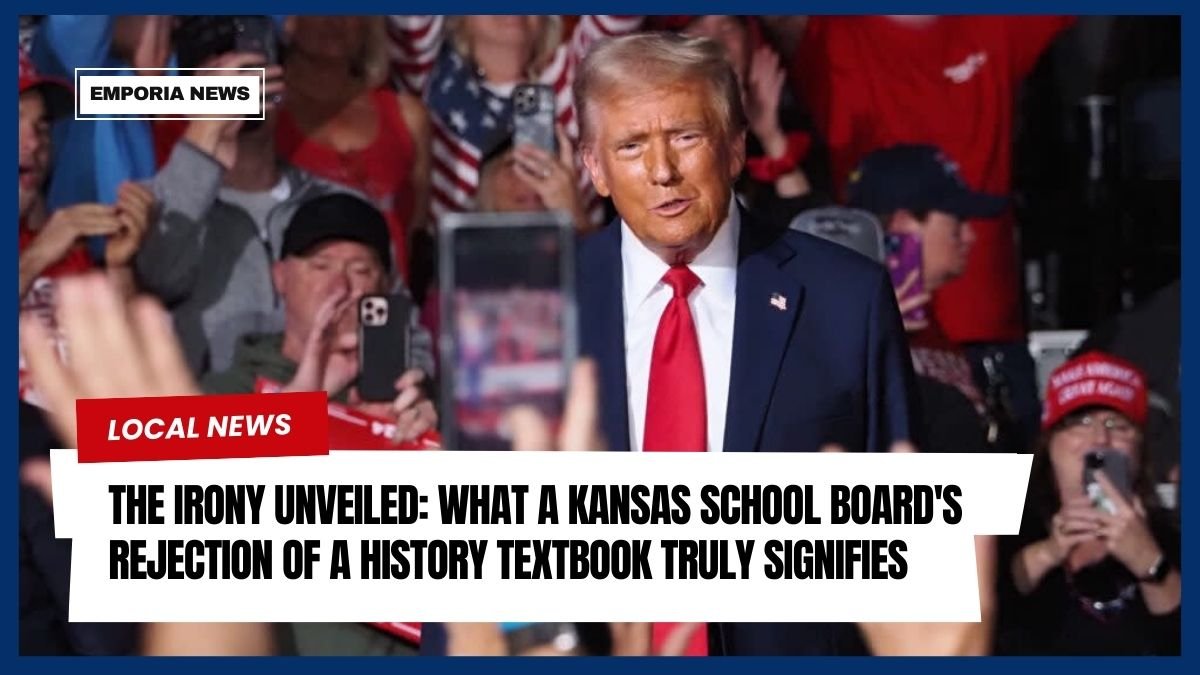While American politics often captures headlines, an unsettling transformation is occurring within local communities. This change—marked by the intrusion of partisan politics into school board decisions—may have a more enduring impact than the presidency. This trend reflects broader cultural divisions and could alter the educational landscape in profound ways.
The Politicization of School Boards
The politicization of school boards emerged prominently in 2020. Parents opposing pandemic-related measures like remote learning and mask mandates fueled this shift. Summer protests following the death of George Floyd deepened societal divides, particularly in rural America, leading to book challenges in school libraries and heightened tensions during school board meetings.
School board discussions, like those in Kansas, have increasingly become platforms for hyper-partisan agendas. These agendas, often driven by misinformation, include denial of scientifically proven facts, such as the efficacy of COVID-19 vaccines and masks, and opposition to teaching comprehensive American history.
The Derby School Board Controversy
Background on Derby, Kansas
Derby, the largest suburb of Wichita, Kansas, boasts scenic walking and biking paths and a prominent high school serving over 2,100 students. However, this seemingly idyllic community became a battleground for educational content debates.
Rejecting a Social Studies Curriculum
In December, the conservative majority on the Derby School Board voted 4-3 to reject a proposed social studies curriculum. The curriculum, developed by Houghton Mifflin Harcourt (HMH), was reviewed and recommended by teachers after a year-long evaluation of six programs. The board’s objection stemmed from perceived bias, particularly concerning former President Donald Trump.
Reasons for Rejection
Board member Cathy Boote, a retired teacher elected in 2023, criticized the curriculum for its portrayal of Trump’s policies, including the 2017 “Muslim ban.” Boote argued that the curriculum’s lack of explanation painted Trump as xenophobic. The board also opposed HMH’s public commitment to diversity and anti-racism, viewing it as politically charged.
| Key Objections | Details |
|---|---|
| Perceived Bias Against Trump | Curriculum omitted context about policies like the “Muslim ban.” |
| Opposition to Publisher’s Stance | Statements on diversity and anti-racism were viewed as political advocacy. |
| Concerns Over Indoctrination | Boote claimed the curriculum and related activities displayed a liberal bias. |
The Decline of Trust in Educators
Undermining Teacher Expertise
Despite appeals from teachers and patrons to defer to educators on course materials, the board disregarded their recommendations. Teachers like Kendal Warkentine, who found the curriculum “well-written and engaging,” emphasized its alignment with educational standards. However, the board’s decision sent a clear message: teachers’ expertise is undervalued.
Implications for Critical Thinking
This lack of trust reflects a broader trend in populist politics—a rejection of expertise and rationality. Tom Nichols, in his book The Death of Expertise, argues that this distrust erodes the relationship between experts and citizens, replacing shared facts with emotional, subjective interpretations.
Censorship and Hypocrisy
The actions of the Derby School Board reveal contradictions in their rhetoric. While claiming to support diverse viewpoints, they rejected materials that did not align with their political ideology. This selective censorship fosters a climate of fear among educators, discouraging discussions on sensitive but necessary topics.
Broader Implications for Rural America
The Threat of Single-Party Control
As partisanship infiltrates local school boards, there is a risk of creating single-party machines that stifle dissent and critical thought. The Derby School Board’s actions exemplify this danger, with decisions driven by political self-interest rather than educational benefit.
A National Issue
This phenomenon is not isolated to Derby. Across the country, similar battles over curriculum content and school policies reflect deepening cultural and political divides.
Choosing a Path Forward
The Derby School Board’s rejection of expert recommendations highlights the precarious state of education in politically charged environments. To safeguard the integrity of education, communities must resist the encroachment of partisanship in schools. Trusting educators, valuing expertise, and fostering open dialogue are essential steps toward ensuring that students receive the education they deserve.




